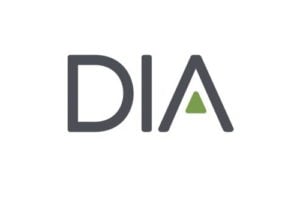Writing in the February edition of DIA’s Global Forum magazine, Thomas Kühler of Sanofi R&D looks at the future of European pharma post-Brexit, with the UK diverging from the rest of the continent in regulatory terms and the launch of the European Commission’s Pharmaceutical Strategy for Europe.
After four and a half years of Brexit discussions and negotiations, the UK and the EU have managed to arrive at a trade agreement at the eleventh hour and avoid a hard Brexit. In the absence of an agreement, a hard Brexit would have been the default and would have had immediate and severe implications on (timely) access to medicines for patients. The deal applies provisionally as of 1 January 2021, as it still must be ratified by, among others, the European Parliament. Notwithstanding, the trade agreement is welcomed by many stakeholders in the sector as it has lessened the uncertainty around the future relationship between the EU and the UK and has allowed for more clarity on future business operations.
Trade associations in the sector have called for continued regulatory alignment between the UK and the EU and while there is language on exploring continued (regulatory, I suggest) cooperation with EU institutions (i.e., the EMA) in the agreement, it is apparent that the UK regulator will pursue its own way. This is evidenced by their expedited reviews, and first worldwide approvals, of three different COVID-19 vaccines, the launch of the Innovative Licensing and Access Pathway, and their search for alternative partners beyond the EU for regulatory cooperation, to name but a few examples.
Along with forging this Brexit deal, the European Commission published its much-awaited Pharmaceutical Strategy for Europe. This document spans a wide range of topics from antimicrobial resistance to reducing the impact of pharmaceuticals on the environment. While everything cannot be captured in this review, one notable initiative includes a proposal for an EU Health Emergency Response Authority (HERA). The COVID-19 pandemic has undoubtedly precipitated a desire for increased health emergency preparedness and augmented response planning. HERA will, among others, be responsible for identifying health threats, suggesting proper countermeasures, and addressing supply chain vulnerabilities (see more about the latter below).
The COVID-19 pandemic has undoubtedly precipitated a desire for increased health emergency preparedness and augmented response planning. HERA will, among others, be responsible for identifying health threats, suggesting proper countermeasures, and addressing supply chain vulnerabilities
Another rather significant proposal is to revise the legislation of medicines for children and rare diseases as outlined in an Inception Impact Assessment (IIA) on the subject. In IIA, the European Commission proposes to revise the legislation while dismissing non-legislative amendments, which is something industry would have preferred. Indeed, a recent White Paper proposes several non-legislative measures that would go a long way towards achieving the objectives outlined in IIA. Some of these proposals were already at hand and agreed on quite some time ago but were unfortunately delayed because of Brexit.
One of the objectives in IIA centers on unmet need. To this end, incentives are suggested to be (re)directed to areas of unmet need. Some novel rewards, such as transferrable vouchers, are also considered; reducing incentives, such as the six months Supplementary Protection Certificate, is proposed in areas not considered to be unmet needs. However, such topics are probably areas in which one should tread carefully. A recent study did lend evidence to the notion that incentives in the Orphan Drug Regulation were rather effective in promoting the development of new (paediatric orphan) drugs while the Paediatric Regulation, which is based on obligations, was not successful in delivering on one of its core objectives (i.e., more paediatric drugs).



